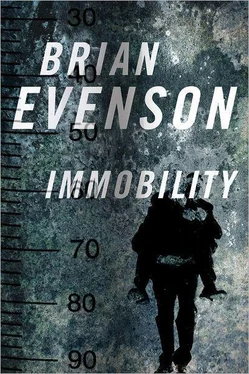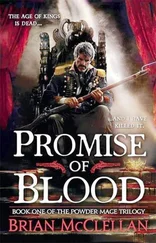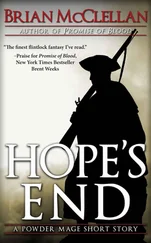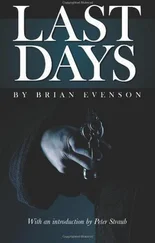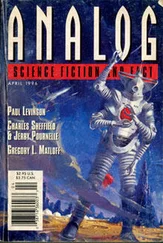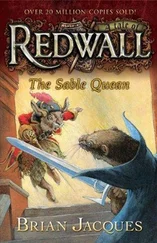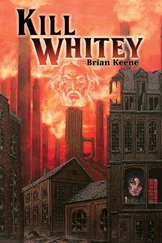After moving to the very end of the bed, he found he could reach out far enough to grasp the door handle, which proved to be locked. Am I a prisoner? he wondered. Perhaps he had locked it himself when he reached for it; he looked for a button or some other device on the knob, but no, it was locked, and locked from the outside.
Fair enough, he told himself. He’d nearly killed the technician, almost without thinking about it. He’d sent both Olaf and Oleg to the infirmary. There was no need to read anything into it. Perhaps they were just being cautious.
He scooted back along the bed until he could reach the chair, pulled it next to the bed, heaved his way onto it. He could feel the jolt in his back and spine, but it wasn’t the same intense pain he’d been feeling before. His body was already adapting, learning to dampen out and process sensation, blot out pain. Soon he’d be more or less himself again, more or less human. And then maybe his memory would come back as well.
Moving the chair over to the desk proved much harder. Without functioning legs, he had no way to scoot it along. At first he could push against the side of the bed and slide the chair away, but soon he was too far away to get any leverage and his own weight kept the chair from actually moving. In the end, he had to fall out of the chair and then drag it and himself along to the desk and then pull himself up into it.
By the time he was sitting in the chair again, he’d bent one edge of the desk-shelf and cut his forearm. He felt exhausted. How would it be possible to travel forty-six miles like this, even with help? he wondered. Without legs, how could they expect him to go anywhere?
What he’d thought was a pencil was a pen. He toyed with it, twirling it between his thumb and forefinger, and then lined up the pad of paper and wrote. The lines of ink, when they came out, glowed softly:
What I Know
1. I was stored for thirty years.
2. I have been woken up to perform a task.
3. Something is wrong with my memory.
He stopped, then with his thumb brushed over the words “with my memory” until they blurred and became a glowing splotch. Something is wrong. He stared at the wall in front of him. With his memory certainly, but it was more than just that: there was something wrong with the world at large, and something wrong here as well. The locked door suggested as much. He stared at the wall and tried to see, on it or through it, something—some scene, image at least—from his past.
At first nothing came. He closed his eyes, sighed. And then an image flitted through his half-dozing imagination that made no sense at all. He caught a glimpse, as if he were standing inside it, of a dome supported by pendentives, rising over a large rectangular space. It was made of stone, probably granite, and lit only from outside, by small slotted windows high in the dome itself. He could hear a sound like muffled laughter but when he turned toward it, it stopped, starting again once he turned back to the dome itself. The pillars, he saw, were moist, covered in a viscid gray substance that glistened where the sunlight struck it. There were paths of the same substance in the dome above as well, he saw, like snail paths, and there, at the very top of the dome, a rubbery agglutination the length and thickness of his forearm that, suddenly, moved.
He opened his eyes, shook his head. Probably just fragments of a dream, he thought, no reason to think it was a memory. It didn’t make any sense as a memory.
When he looked down, he saw his hand had been busy with the pen and had gone on doodling without him. On the pad below his list were several glowing sets of legs, independent of any bodies, each one carefully circled.
* * *
HE HAD TRIED TO BRING the image back, but it wouldn’t come, at least not with the vividness or clarity it had come the first time.
He must have dozed off in the chair for a while, for the next thing he knew, he was startled awake by the sound of the door opening. It was Olaf and Oleg. They both looked resentful. A large bruise had spread over the right side of Olaf’s face, and Oleg’s nose was taped, both eyes blackened and bloodshot.
“He’s awake already,” said Olaf.
“Probably not too eager to sleep after being stored so long,” said Oleg, and smirked.
“What do you want?” said Horkai.
“We want you,” said Oleg.
“Time to go,” said Olaf.
And then they were taking hold of either side of his chair, starting to lift it up. Olaf was, anyway, nearly tipping him out of it—Oleg had turned to the desk and was looking at the paper.
“What’s this?” he asked.
“That’s nothing,” said Horkai.
“If it’s nothing, you won’t mind if he takes it,” said Olaf as Oleg tore the sheet off the pad and folded it up, put it in his pocket.
He opened his mouth to protest and then thought, What does it matter? Without objection, he allowed them to carry him out.
* * *
RASMUS WAS WAITING FOR THEM, standing beside his desk, hands clasped behind his back.
“You didn’t have to bring the chair,” he said.
“He was already awake,” said Olaf.
“And in the chair,” said Oleg.
Rasmus shrugged. “Put him down over there,” he said brusquely, “and go fetch the mules.”
“Mules?” said Horkai.
“Hmmm?” said Rasmus, half distracted. “Oh, yes,” he said. “Good morning, by the way. Mules. They’ll take you there.”
“Two of them?”
“You’ll ride one and then you’ll ride the other.”
He thought again of how difficult it had been to get from the bed to the chair. How would he manage to get from one animal to the other?
“Will they have a handler?” he asked. “A, what’s the word, a drover?”
Rasmus looked confused. “A what? What’s a drover, and why would you need one?”
“Will I be at least given a map? Look at me,” said Horkai. “I’m a paraplegic. How am I to control two animals?”
Rasmus face broke into a grin. He threw his head back, burst out laughing.
“What?” said Horkai.
“You think I mean mules like horses,” he said. “You really can’t remember anything, can you?”
“What do you mean?”
“There aren’t any animals anymore. Most were killed in the Kollaps, or eaten shortly after. The few that survived went extinct decades ago. Most of us have never even seen an animal.”
“But you said mules,” insisted Horkai.
“The mules I was talking about have two legs instead of four. They look human enough. They’ve been trained to carry you.”
“What, for forty-two miles?”
“More like forty-six. Two individuals, actually, taking turns, day and night. The roads are too ruined to do otherwise. They’ve been trained for it. It’s all arranged.”
The door opened and he turned toward it. “Ah,” he said, “we were just talking about you. Let me introduce you to Horkai, your burden.”
* * *
ONE OF THE MULES was named Qanik, the other Qatik; they told him to refer to them as the Qs. Both spoke awkwardly, as if waiting for the words to blunder up their throats and into their mouths. Both had dark hair and olive skin but also piercing blue eyes. Both stood well over six feet tall. They were broad shouldered and muscle-bound, identical in appearance as far as he could tell.
“This is your burden,” Rasmus told them, speaking slowly and carefully. “You shall deliver him as agreed, and then you shall bring him back safely. That is your purpose.”
The mules nodded. “We shall deliver him and we shall bring him back,” one of them said. “Or we shall die trying.”
Читать дальше
